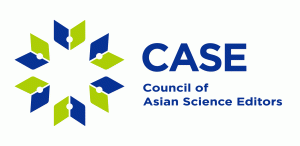Case 10th Newsletter
Published on 30 December, 2024.
Edited by Geun Cheol Park and Tae-Sul Seo.
Contents
- Welcome Message from the President
- Greetings from the former President
- [Meeting Report] CASE 2024
- [Meeting Report] Report on the 2024 Council of Science Editors Annual Meeting
- [Activities] Indonesian Association of Scientific Journal Editors (IASJE) in 2024
- [Activities] Korean Council of Science Editors (KCSE) in 2024
- [Activities] Vietnam Association for Science Editing (VASE) in 2024
- [Activities] Malaysia in 2024
- [Activities] Japan in 2024
- [Articles] Reflecting on the past 10 years of Asian scholarly journals
- [Articles] Recommendations on the Use of AI in Scholarly Communication
- [News] Cactus in 2024
- Forthcoming Events
Meeting Report: The 8th Asian Science Editors’ Conference and Workshop 2024
Tae-Sul Seo
Secretary-General of Council of Asian Science Editors, KISTI
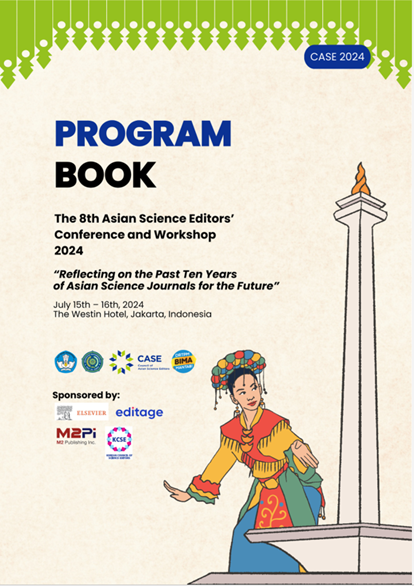
The 8th Asian Editors’ Conference and Workshop 2024 was held at The Westin Hotel, Jakarta, with the theme “Reflecting on the past ten years of Asian Science Journal for the Future.” About one hundred and eighty participants from 11 countries attended the conference (Figure 2). It was a face-to-face conference six years after 2018 that commemorated the tenth anniversary of the CASE.
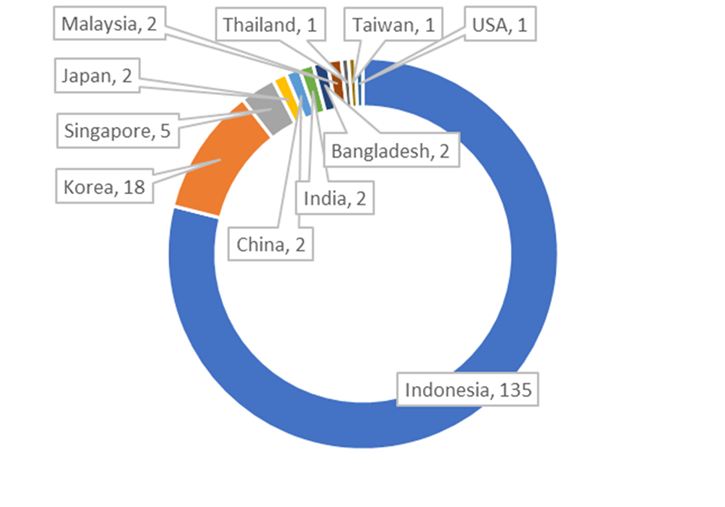
The program consisted of a plenary session, five workshop sessions, a forum, two invited talk sessions, and poster presentations. The plenary session was chaired by Zuriati Zakaria, Professor, IKM, Malaysia who was also the newly elected president of the Council of Asian Science Editor. In the plenary session, two presentations were given. Dr. Ramanathan Subramaniam, the former President of CASE, gave the first presentation. He addressed the outlook of Asian science journals, especially in the STEM discipline. He believed that Asian science journals could be improved and jump to the next level by considering strategic thinking. He suggested some critical issues for Asian science journals to raise their international status.
The second presentation was given by Mr. Yoga Dwi Arianda, scientific journal coordinator, Directorate of Research, Technology, and Community Service, Ministry of Education, Culture, Research, and Technology, Indonesia. He gave information on how the Indonesian government measured the quality of a scientific journal and monitored the journal’s performance in Indonesia. He also showed us the scientific journal accreditation (ARJUNA) system which assesses strictly the journal quality through certain assessment aspects. Every journal has to meet the minimum criteria of journal assessment before being submitted to the ARJUNA portal. The result of the journal accreditation assessment was classified into six score levels displayed in the SINTA (Science and Technology Index) portal.
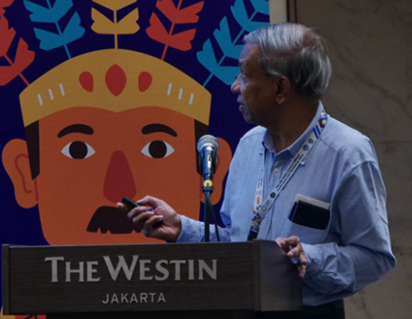
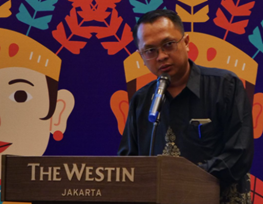
Figure 3 Presenters of the Plenary session
On the first day, five workshops proceeded as shown in Figures 4, 5, 6, and 7. In workshops 1 and 2, country reports of Korea, Japan, Thailand, and Malaysia were presented. In workshop 3, four experts presented how to improve the quality of Asian journals. Workshop 4 covered the subject of journal indexing in DOAJ, Scopus, and WoS. Finally, in workshop 5, two presentations on publishing ethics were conducted.
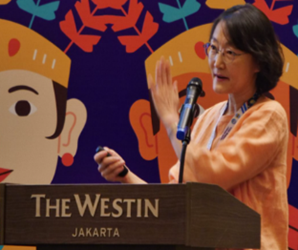
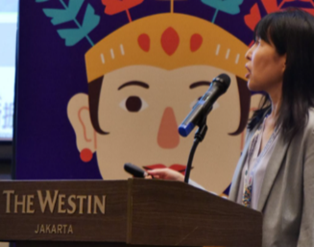
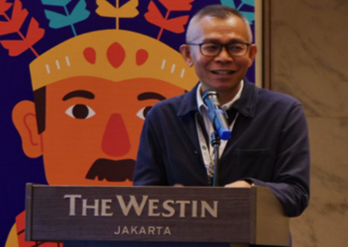
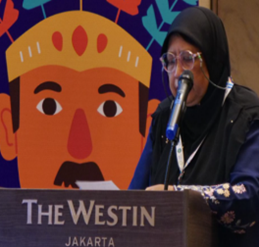
Figure 4 Presenters of the Workshop-1 & 2
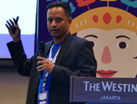

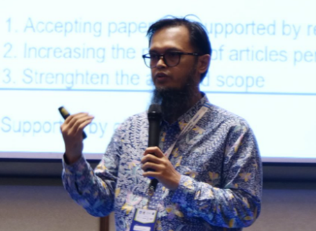
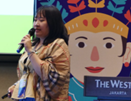
Figure 5 Presenters of the Workshop-3
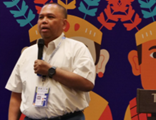
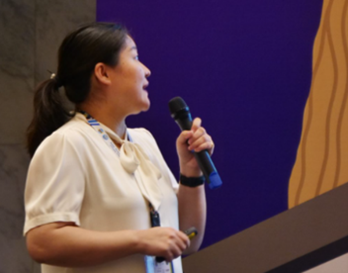
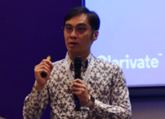
Figure 6 Presenters of the Workshop-4
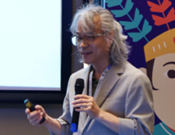
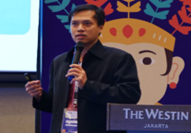
Figure 7 Presenters of the Workshop-5
On the second day, a forum was held for the first time at this event (Figure 8). The forum dealt with artificial intelligence in journal publishing, a hot topic. Professor Kihong Kim introduced a recent trend of AI technologies used in journal publishing. An active discussion, by experts from Korea, India, Singapore, Indonesia, and Malaysia, was followed.
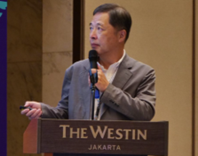
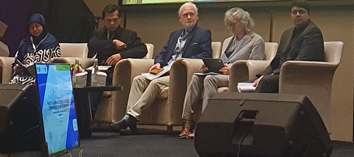
Figure 8 Forum for AI in journal publishing
The event was finalized after invited talk sessions including four speakers (Figure 9). Firstly, Professor Abdullah from Malaysia introduced the concepts of diamond open access and preprint as recent trends of journal publishing, while Dr. Hur from Korea introduced recent services of Crossref. Mr. Yoo from Korea and Mr. Clarke from Singapore dealt with peer review in journal publishing.
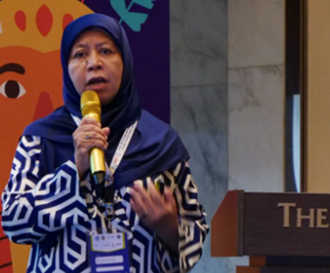
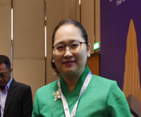
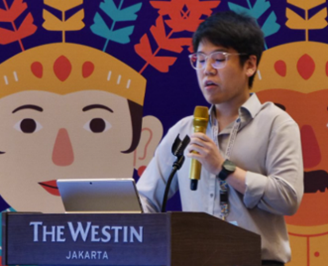
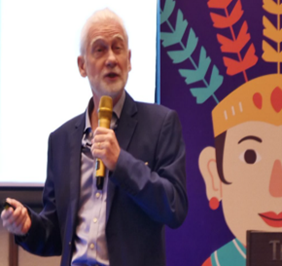
Figure 9 Presenters of the Invited talk session-1 & 2
During the second day, eleven posters were presented (Figure 10). Four posters were from Korea and six were from Indonesia. Three Indonesian posters were from Universitas Airlangga. Best poster prizes were awarded to one from Korea and two from Indonesia.
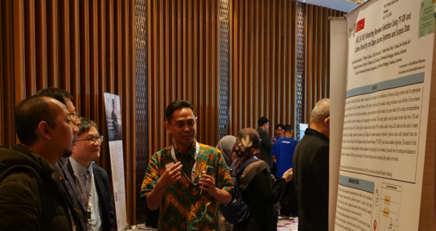
Figure 10 A photo of a poster presentation
